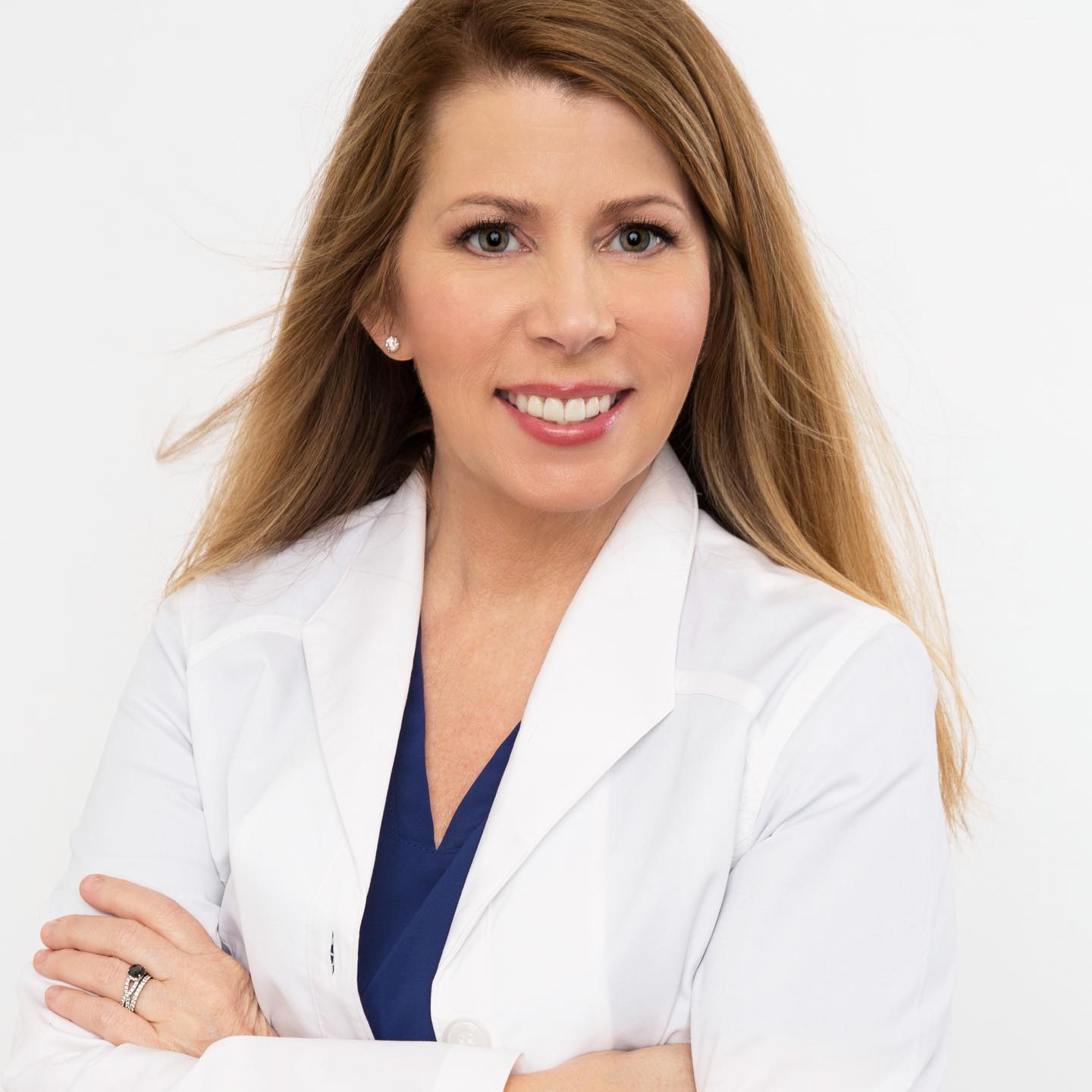
Julee Miller, DAcCHM, AP, FABORM
Julee Miller, DAcCHM, AP, FABORM
City: Jacksonville, Florida, USA
Visit types: In person
Spoken languages: English
Interpreting services for other languages: No
At the heart of our approach to treating endometriosis-related pain lies a commitment to whole-person healing that acknowledges both the physical and emotional dimensions of living with this complex condition. Our philosophy encompasses several core principles: personalized, multi-faceted care. We believe that each person’s experience with endometriosis is unique. Pain patterns, symptom triggers, and responses to treatment vary widely between individuals. Therefore, we reject one-size-fits-all approaches in favor of personalized treatment plans that address the specific manifestations of endometriosis in each person. Integration of Eastern and Western Approaches: Rather than positioning conventional medicine and natural therapies as opposing forces, we view them as complementary parts of a comprehensive treatment strategy. Surgical interventions and hormone therapies may be essential components of care for many, while acupuncture, herbal medicine, and lifestyle modifications can provide additional layers of support that address underlying imbalances and enhance overall well-being. Addressing Root Causes, Not Just Symptoms While pain relief is an immediate priority, our philosophy extends beyond symptom management to address the underlying factors contributing to pain and inflammation. This means working to modulate the immune response, balance hormonal fluctuations, reduce systemic inflammation, and restore proper circulation to the pelvic region. Empowerment Through Education We believe that understanding your condition is the first step toward taking control of it. By providing education about the mechanisms of endometriosis, the connections between symptoms, and the rationale behind various treatments, we empower you to make informed decisions about your care and become an active participant in your healing journey. The Body’s Innate Healing Capacity A cornerstone of our philosophy is recognizing and supporting the body’s natural capacity for healing. Rather than always fighting against the body, our treatments aim to create optimal conditions for the body’s self-regulatory mechanisms to function more effectively, bringing systems back into balance and reducing pain naturally. Holistic View of Pain We understand that endometriosis pain exists within a complex web of physical, emotional, and social factors. Stress, sleep quality, past trauma, dietary patterns, and environmental influences all play roles in pain perception and inflammatory responses. Our approach honors this complexity by addressing these interconnected elements rather than isolating pain as a purely physical symptom. Quality of Life as the Ultimate Measure While objective measures like lesion size have their place, we believe the true measure of successful treatment is improved quality of life. Our goal is not just pain reduction but helping you reclaim your vitality, emotional well-being, and ability to engage fully in the activities that bring meaning to your life. Through this multidimensional philosophy, we strive to offer not just relief from pain but a pathway to renewed wholeness and well-being for those living with endometriosis.

Dr. Paulami Guha, MD, FACOG
Dr. Paulami Guha
Paulami Guha MD – Gynecology & Minimal Invasive Surgery, Endometriosis Specialist
Summary: Dr Paulami Guha MD is a compassionate endometriosis specialist offering advanced care in Jacksonville, FL. Patients searching for expert support from Dr Guha Jacksonville FL can trust her thorough and personalized approach. With a strong belief in multimodal treatment, Dr Guha combines surgical excision—both robotic and laparoscopic—with medical management to address the full spectrum of endometriosis symptoms. She treats each patient holistically, considering physical, emotional, and reproductive needs. After excision, she commonly prescribes continuous hormonal therapies and offers guidance for those trying to conceive. When pain persists, Dr Paulami Guha MD integrates pelvic floor physical therapy, acupuncture, and menstrual suppression strategies to improve quality of life. Her balanced approach is rooted in coelomic metaplasia and Sampson’s theory, with a deep understanding of the disease’s complexity. Patients across Jacksonville and beyond seek Dr Guha for her expertise, empathy, and dedication to long-term healing.
City: Jacksonville, FL
Philosophy of Endometriosis Care: Coelomic Metaplasia; blockage in the reproductive tract, treating pain symptoms; multimodal management – surgical and medical, also addressing the mental component; surgical excision of endometriosis; medical management by suppression of menstruation and Sampson’s theory.
What type of surgery do you perform for endometriosis?: Robotic and Laparoscopic Excision
Medication: Surgical excision followed by continuous norethindrone vs. progestin-only pills vs OCPs. If the patient is waiting for surgery and is in pain or heavy bleeding, I do recommend GnRH antagonists or agonists. In infertility patients, I recommend trying for pregnancy right away. Have used letrozole in adenomyosis patients who are going to try for pregnancy.
Approach to Persistent Pain After Surgery: For pain, I recommend pelvic floor physical therapy and acupuncture, and also suppression of menses.
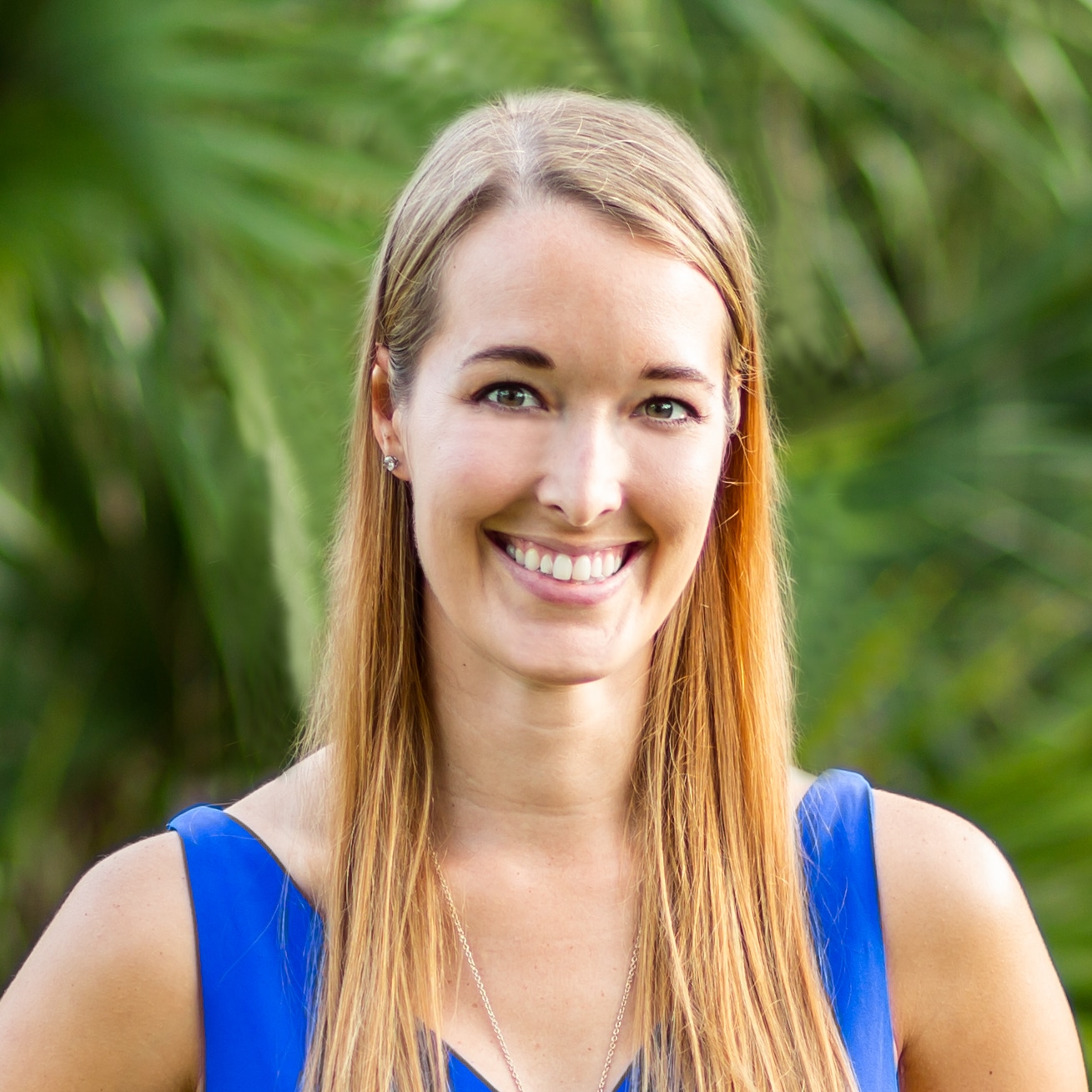
Briana Wyatt, PT, DPT
Briana Wyatt, PT, DPT
Briana Wyatt—Endometriosis Physical Therapist
Summary: Briana Wyatt, PT, DPT, is a dedicated endometriosis physical therapist based in Bonita Springs, Florida. At Holistic Health Physical Therapy and Wellness, Briana Wyatt offers a whole-body, holistic approach to care that focuses on identifying root causes and supporting the body’s natural ability to heal. She combines expertise in pelvic floor therapy, visceral mobilization, and myofascial release with advanced training in functional medicine and strength conditioning. Briana Wyatt believes deeply in a multidisciplinary path to recovery, often collaborating with other providers to ensure each patient receives comprehensive, personalized care. Her goal is to help individuals with endometriosis feel seen, supported, and empowered as they navigate their healing journey with compassion and expert guidance.
City: Bonita Springs, Florida
Visit types: Office/Hospital, At home, Virtual
Spoken languages: English
Interpreting services for other languages: No
What you should know about me:
I take a holistic approach to physical therapy and wellness, focusing on addressing the whole body, identifying the root cause of illness and injury, and maximizing the body’s potential to heal. I incorporate my education in functional and holistic medicine, as well as additional training in pelvic floor therapy, visceral mobilization, myofascial release, and extensive strength and conditioning training. I believe in a multidisciplinary approach to endometriosis and enjoy working with additional providers for a well-rounded journey to healing.
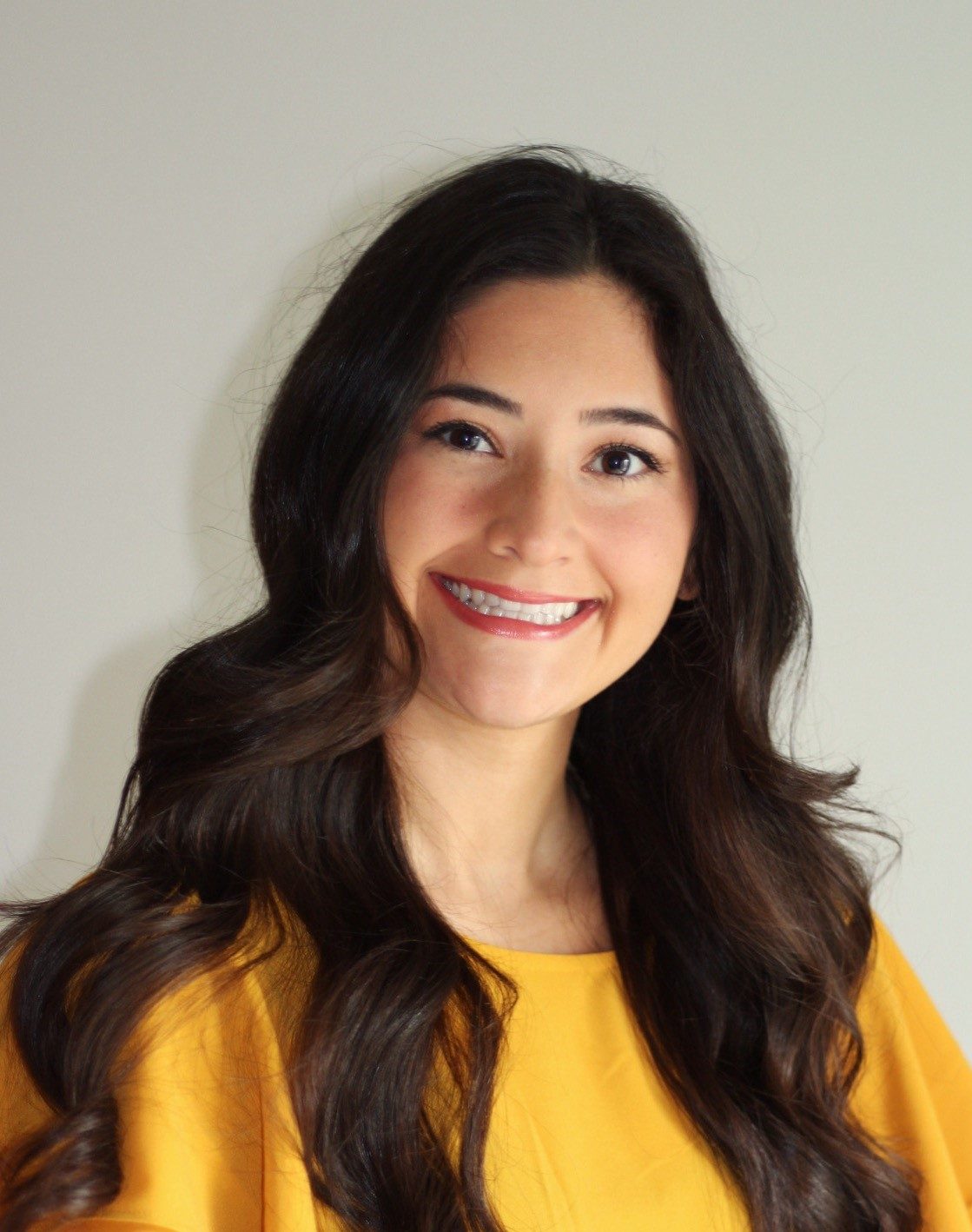
Jordan Alnemer, PT, DPT
Visit types: Office/Hospital
Spoken languages: English
Interpreting services for other languages: No
Philosophy of care and typical treatment strategies: As a pelvic floor physical therapist, I have been trained in visceral (uterus/ovaries, bladder, and colon) mobilization, myofascial release, fertility considerations, and pelvic tissue mobilization (internal and external treatment). My treatment philosophy is to work with the patient to reach their goals. I can work as a guide to get people where they need to be while providing education and expertise along the way. My treatment philosophy is very hands-on, with instruction for pain/symptom management techniques. I strive to provide optimal care of those who have endometriosis, regardless of how far along they are in their treatment process.

Amy Jaramillo, OT
Amy Jaramillo, OT
Amy Jaramillo – Endometriosis Occupational Therapist
Summary: Amy Jaramillo, OT, is a dedicated endometriosis occupational therapist based in Florida at Body Motion & Love Mechanics, LLC. Amy Jaramillo specializes in pelvic floor rehabilitation and personalized care to help patients find relief and improve quality of life. Her approach includes pelvic floor muscle training, scar management, diaphragm release, and visceral mobilization. She also incorporates joint mobilization, myofascial release, and soft tissue techniques tailored to each patient’s unique needs. Amy Jaramillo emphasizes low-pressure training and bowel/bladder retraining to address complex symptoms related to endometriosis. Her compassionate care focuses on restoring function and easing discomfort through evidence-based therapies. Patients working with her benefit from a holistic plan that supports healing and empowers them to regain control of their health. Her commitment to gentle, effective treatment helps individuals manage symptoms and improve daily well-being naturally.
Visit types: Office/Hospital/At home/Virtual
Spoken languages: English, Spanish, Romanian
Interpreting services for other languages: No
Philosophy of care and typical treatment strategies:
Pelvic floor rehabilitation
Pelvic floor muscle training
Scar management
Diaphragm release and training
Abdominal release
Visceral mobilization
Joint mobilization
Myofascial release
Low pressure training / hypopressives
Bowel/Bladder training
Soft Tissue Mobilization
Perineal Massage
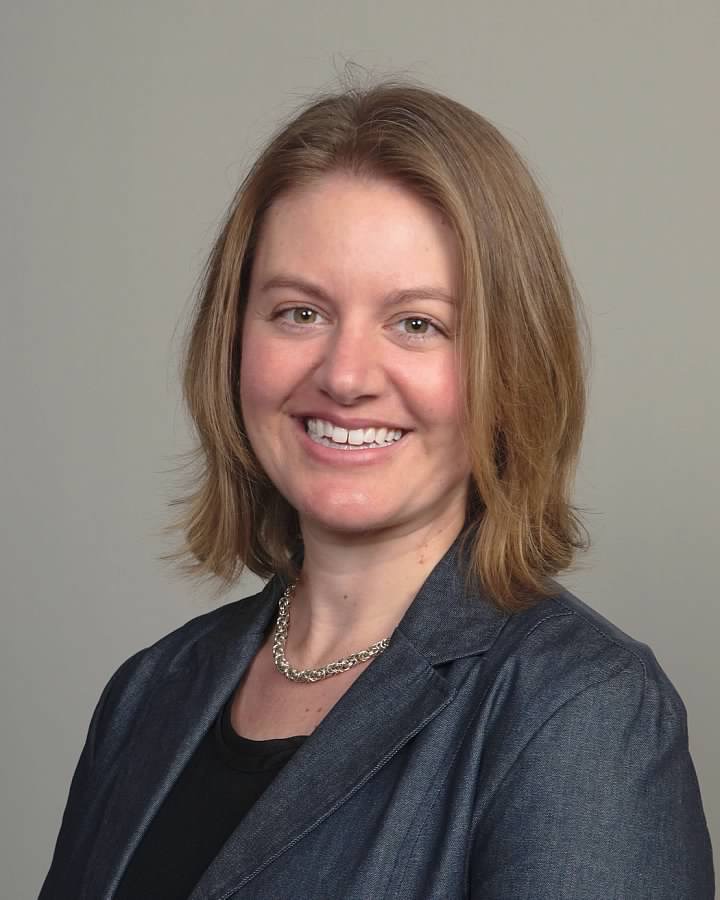
Katie Coleman, PT, DPT
Katie Coleman, PT, DPT
Katie Coleman – Endometriosis Physical Therapist
Summary: Katie Coleman, PT, DPT, is an experienced endometriosis physical therapist based in Florida at Elevate Physical Therapy. She embraces a comprehensive, whole-body approach to care, focusing on the biopsychosocial model to address the complex needs of patients with endometriosis. Her treatment strategies include visceral mobilization, myofascial release, dry needling, Pilates therapy, neural glides, therapeutic exercise, and patient education. Katie Coleman is dedicated to helping patients manage pain, improve function, and enhance quality of life through personalized, evidence-based care. She emphasizes empowering patients with knowledge and tailored therapies to support lasting relief. Katie Coleman’s approach combines physical techniques and education, ensuring a holistic path to wellness for those living with endometriosis. Patients appreciate her warm, attentive care and commitment to multidisciplinary collaboration for optimal outcomes.
Visit types: Office/Hospital
Spoken languages: English
Interpreting services for other languages: No
Philosophy of care and typical treatment strategies: I believe in a comprehensive, whole-body approach to care. I subscribe to the biopsychosocial model of practice. I include the following techniques in my practice: visceral mobilization, myofascial release, dry needling, pilates therapy, neural glides, therapeutic exercise, and patient education.

Dr. Gaby Moawad
Dr. Gaby Moawad, MD.
Dr Gaby Moawad Md – Endometriosis Specialist, Gynecologist, Minimally Invasive Gynecologic Surgeon
Summary: Dr Gaby Moawad MD is a renowned endometriosis specialist and minimally invasive gynecologic surgeon based in McLean, VA. With a research-driven approach, Dr Gaby Moawad blends advanced surgical expertise with a deep understanding of genetic and epigenetic factors influencing endometriosis. Patients searching for expert care from Gaby Moawad MD will benefit from his commitment to holistic, personalized treatment that goes beyond surgery.
Gaby Moawad offers comprehensive management for chronic pelvic pain, combining surgical precision with hormonal therapy, pain desensitization, pelvic floor therapy, and integrative care like acupuncture and nutrition. Dr Gaby Moawad ensures each patient receives thoughtful, long-term support tailored to their fertility goals and symptom profile. His dedication to evidence-based care and whole-person healing makes him a trusted choice for those seeking lasting relief from endometriosis.
City: Mclean, VA, USA
Philosophy: Endometriosis has been considered for a century as implants of endometrial-like tissue outside the uterus either following retrograde menstruation into the peritoneal cavity or following hematological dissemination. This implantation theory is attractive as endometriosis looks histologically like the endometrium, as retrograde menstruation contains living cells that can implant, and as the fibroblasts from endometriosis or from the endometrium of women with endometriosis have an increased invasion capacity.
The implantation theory does not explain why endometriosis lesions develop in some women only, while retrograde menstruation seems to occur in most women. Some observations are difficult to explain by the implantation of endometrial cells following retrograde menstruation. The clonality of each endometriosis lesion, as described for deep and cystic and typical endometriosis, is more consistent with a G-E (genetic-epigenetic) incident related to intracellular aromatase activity resulting in intracellular estrogen production than to newly implanted endometrium. The implantation theory does not explain the occurrence of endometriosis in women without a uterus, and in men. It is more likely that deep endometriosis lesions can become symptomatic more than 10 years after menopause in the absence of increased circulating estrogen as a result of a G-E cellular incident than that implanted endometrium would suddenly start to develop. It should be realized that theories such as coelomic metaplasia, endometriosis originating from bone marrow/stem cells, Müllerian rests, tissue injury and repair, repeated tissue injury and repair, estrogen toxicity and traumatic induction are compatible with and can be considered today to require epigenetic changes.
Recently, the G-E theory of endometriosis was formulated as an update of the endometriotic disease theory. Endometriosis starts in the G-E theory, irrespective of the original cell when a cumulative combination of specific genetic and/or epigenetic cellular incidents exceeds a certain threshold. The inherited genetic and epigenetic incidents at birth explain the hereditary character of endometriosis. It remains unclear whether and how epigenetic changes are transmitted transgenerationally in endometriosis. The effects of minor G-E abnormalities remain clinically invisible because of the redundancy of molecular biological mechanisms in the cell, but they increase the risk of developing the disease when additional incidents occur. Additional incidents can occur during intra-uterine development because of the maternal environment and external factors, and during live mainly as mistakes during mitosis. Most G-E mistakes result in apoptosis of the cell if they cannot be repaired. Some minor incidents, however, do not cause cell death and are transmitted to the next generation of cells. These incidents are favored by mutagenic substances such as dioxins and other pollutants, radiation, or oxidative stress such as caused by retrograde menstruation or by infection or by the peritoneal microbiome. The dynamic and gradual aspect of these mistakes and their inheritance is important. The crosstalk between genetic and epigenetic mechanisms makes the cell vulnerable to new incidents, especially when the external circumstances are unfavorable. The cell thus becomes progressively more vulnerable to acquiring more mistakes, with some of them being cancer-associated mutations explaining the clonal expansion.
The G-E theory adds to the implantation and other theories that the onset of the disease requires a cumulative and triggering combination of G-E cellular incidents. With the G-E hypothesis, it seems logical to postulate that the specific set of G-E incidents will orient the development into clinically subtle, typical, cystic or deep lesions. A specific set of G-E incidents also explains that each type of lesion is heterogenous with variable aromatase activity, progesterone resistance, estrogen sensitivity and probably many other factors. Additional incidents occurring during further development result in endometriosis lesions which are probably also heterogeneous at the cellular level, as demonstrated for breast cancer.
After their triggered initiation, the lesions develop in an environment different from the uterus with different microbiota and different immunologic, endocrine and paracrine influences. The cyclic endocrine changes with eventual bleeding will moreover result in repetitive traumas which increase the risk of developing additional G-E incidents and ultimately fibrosis. Therefore, all theories emphasising trauma, immunology, the role of estrogen and peritoneal fluid retain their full importance for understanding the growth of endometriotic lesions.
Much of the many endometriosis-associated changes, such as changes in the endometrium and in the immunology can be viewed as a consequence of the inherited predisposition instead of being a consequence of endometriosis.
Although poorly understood, reversibility of epigenetic changes becomes more difficult when additional epigenetic incidents have occurred. When the associated genomic instability results in genetic errors, changes become irreversible.
Medication: OCP, Progestins including IUD, gabapentin, Lyrica.
OCP, Progestins are mainly used for suppression after excision
Gabapentin, Lyrica is used for central pain desensitization in preparation to or after surgical management especially for patients with chronic pelvic pain and amplified pain response
Approach to Persistent Pain After Surgery: Endometriosis excision surgery is only one part of the comprehensive approach to the management of endometriosis. Pain medicine has an important role in managing central pain and neuropathic pain, pelvic floor PT helps with myofascial pain associated with endometriosis, other ancillary services like nutrition and pain psychology, acupuncture has proven an added value in the management of endometriosis-associated conditions

Andrea Wood, PT, DPT
Andrea Wood, PT, DPT
Andrea Wood – Endometriosis Physical Therapist
Summary: Andrea Wood is a compassionate provider specializing in pelvic health and endometriosis care in Miami. With a patient-centered approach, Andrea Wood empowers individuals to manage endometriosis by offering practical tools and personalized strategies to enhance quality of life. Her care is delivered in an office or hospital setting, with interpreting services available for non-English speakers, ensuring inclusive and accessible support.
As a leading voice in endometriosis Miami care, Andrea integrates nervous system down training through guided breathing and hands-on manual therapy. She also promotes healthy movement to support long-term wellness and pain relief. Her approach centers on collaboration, fostering a team-based relationship where patients feel seen, heard, and actively involved in their healing journey. Whether you’re newly diagnosed or navigating ongoing symptoms, Andrea Wood brings empathy, expertise, and a holistic mindset to every step of your care.
Visit types: Office/Hospital
Spoken languages: English
Interpreting services for other languages: Yes
Philosophy of care and typical treatment strategies:
My philosophy includes helping individuals with endometriosis learn tools to help live a better quality of life throughout the course of treatments and lifespan. I also integrate nervous system down training through breathing techniques and manual therapy while promoting healthy movement for overall wellness. I believe in a team relationship with my patients in working together to improve their function.
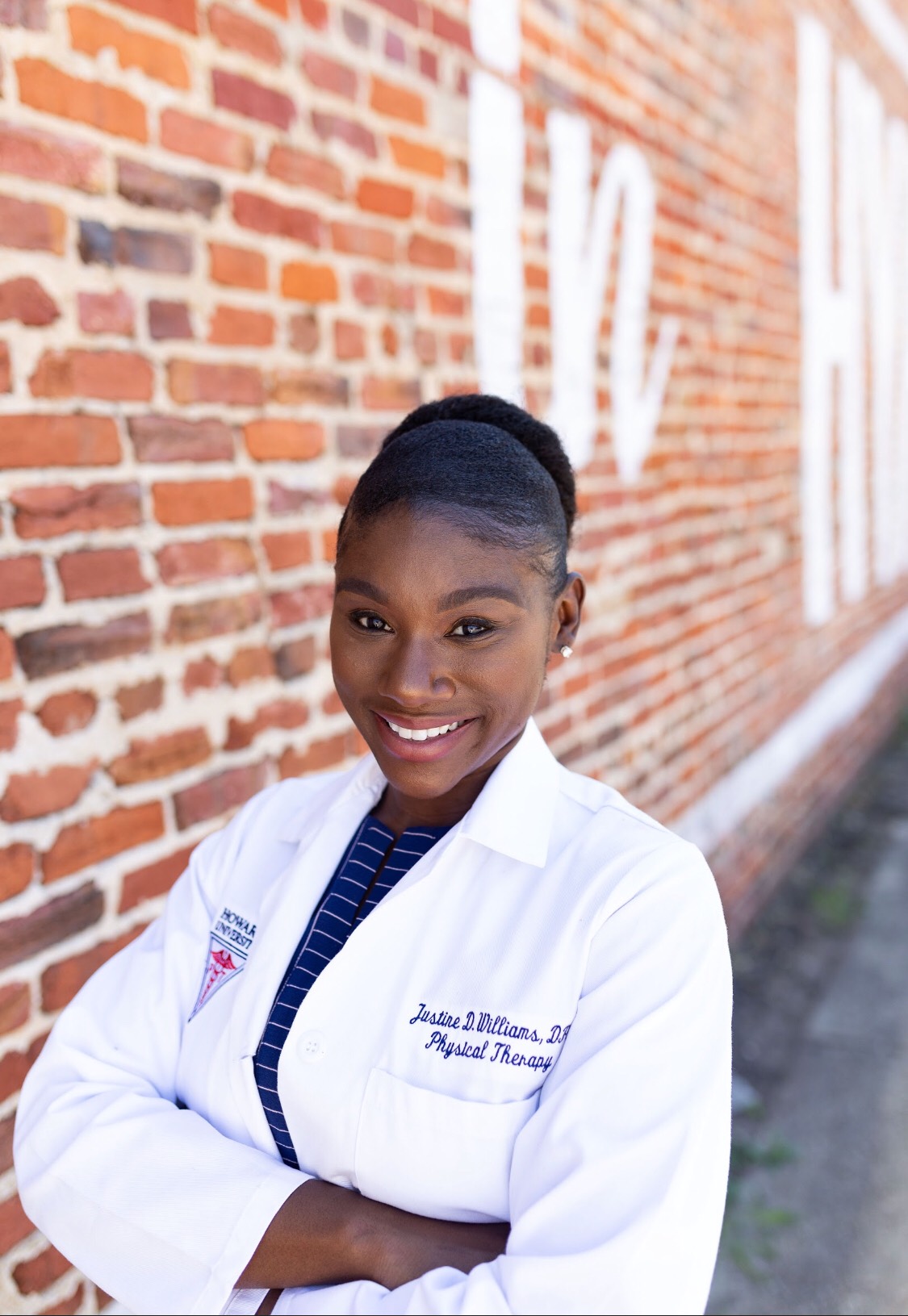
Justine Roper, PT, DPT
Justine Roper, PT, DPT
Justine Roper – Endometriosis Physical Therapist
Summary: Justine Roper, founder of InHer Physique, is a certified women’s pelvic health specialist and experienced pelvic floor therapist dedicated to helping individuals overcome pelvic pain, sexual dysfunction, and the challenges of endometriosis. At InHer Physique, Justine Roper offers holistic, evidence-based care in a welcoming clinical environment, with interpreting services available for non-English speakers.
Justine Roper takes a deeply patient-centered approach, empowering each individual to set functional goals and take an active role in their healing journey. Her therapies are both physical and restorative, incorporating visceral mobilization, myofascial release, breathwork, and functional training. With her blend of clinical expertise and compassionate care, Justine Roper helps patients manage both the physical and emotional impacts of pelvic health conditions. If you’re seeking expert support with endometriosis, Justine Roper and the team at InHer Physique are here to guide you with respect, empathy, and innovation.
Visit types: Office/Hospital
Spoken languages: English
Interpreting services for other languages: Yes
Philosophy of care and typical treatment strategies:
Our lead therapist, Dr. Justine Roper PT, DPT is a certified women’s pelvic specialist & pelvic floor therapist. She has dedicated her life to offering innovative ways to heal her patients’ bodies of pain and other dysfunction through alternative methods. From sexual dysfunction to pelvic pain, many of her patients are impacted by both physical ailments as well as mental health issues. We focus heavily on functional goals established by our patients in order to endow them with autonomy over their treatment plans. Some specific techniques that we use for our patient population affected by endometriosis include visceral mobilization, myofascial release,”breathwork”/breathing techniques, & functional training.
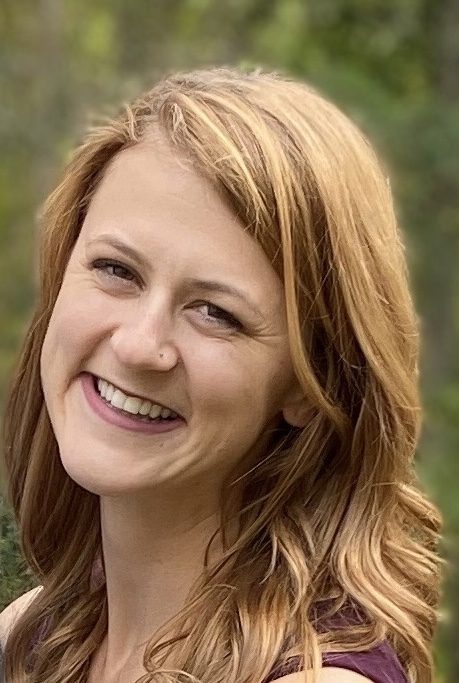
Justine Payne, PT, DPT
Justine Payne, PT, DPT
Justine Payne – Endometriosis Physical Therapist
Summary: Justine Payne is a compassionate and highly skilled pelvic physical therapist with a deep commitment to supporting individuals living with endometriosis and adenomyosis. Fluent in both English and Spanish and offering interpreting services for other languages, Justine provides inclusive care in office, hospital, and even home settings. As a dedicated clinician, Justine Payne, pelvic physical therapist, combines evidence-based treatment with a holistic, patient-centered approach to restore function and reduce pain.
With a strong foundation in neurorehabilitation and training as a yoga instructor, Justine uses techniques like myofascial release, soft tissue mobilization, dry needling, and functional mobility work. She incorporates Pilates, yoga, meditation, and breathwork to address both the body and nervous system. Justine Payne, a pelvic physical therapist, empowers patients through trauma-informed care, education, and shared decision-making, ensuring every person feels heard, safe, and in control of their healing journey.
Visit types: Office/Hospital, At home
Spoken languages: English, Español
Interpreting services for other languages: Yes
Philosophy of care and typical treatment strategies:
The appropriate care and management of individuals with endometriosis and/or adenomyosis have been a passion of mine since I first began working in pelvic health, and through all the experiences I have been so fortunate to have had patients I have learned the importance of a holistic, evidence-based, patient-centered, team approach to the management of these horrendous and all too often misunderstood disorders.
Coming from a strong neurorehabilitation background and having been trained as a yoga teacher as well, I prioritize the treatment not only of the musculoskeletal system via flexibility training, strength training (mainly via pilates and yoga), manual therapies (including myofascial release, soft tissue mobilization, and dry needling, externally and internally if needed) and functional mobility but also the nervous system as a whole. I am a firm believer that the autonomic nervous system plays an intimate role in the management of chronic pain and functional gastrointestinal disorders and use meditation, pranayama, yoga, dry needling, grounding techniques, myofascial release, and aerobic conditioning to improve the functioning of the ANS. I also utilize visceral mobilization in my practice but have not undergone the advanced trainings as of this date (i.e. Barral Institute, Herman & Wallace, etc.).
Above all, providing each and every patient with the education that they need regarding these diseases to make informed decisions, along with providing trauma-informed care, are the two most important cornerstones of my practice. As I say to all of my patients, although you are in my clinic, you are the boss of your own body, and I will always be respectful of your wishes.
————–
Spanish
Primero en aclarar todos esos acrónimos que denotan mis credenciales: Doctor en Terapia Física, Especialista Clínico Neurológico Certificado (APTA), Especialista Certificado en Rehabilitación Pélvica (Herman & Wallace), Profesor de Yoga Registrado (Yoga Alliance 200 horas), Certificado de Punción Seca (Master Punción Seca).
La atención y el manejo adecuados de las personas con endometriosis y/o adenomiosis ha sido una de mis pasiones desde que comencé a trabajar en salud pélvica. A través de todas las experiencias que he tenido la suerte de haber tenido con los pacientes, he aprendido la importancia de un enfoque de equipo holístico, basado en la evidencia y centrado en el paciente para el tratamiento de estos trastornos horrendos y, con demasiada frecuencia, incomprendidos.
Con una sólida formación en la rehabilitación neurológica y con una formación como profesora de yoga, priorizo el tratamiento no solo del sistema musculoesquelético a través del entrenamiento de flexibilidad, entrenamiento de fuerza (principalmente a través de pilates y yoga), terapias manuales (incluida la liberación miofascial, masaje y punción seca, externalmente o internalmente si es necesario) y movilidad funcional, pero también el sistema nervioso en su conjunto. Creo firmemente que el sistema nervioso autónomo juega un papel íntimo en el manejo del dolor crónico y los trastornos gastrointestinales funcionales y utilizo la meditación, pranayama, yoga, punción seca, técnicas de conexión a tierra, liberación miofascial y acondicionamiento aeróbico para mejorar el funcionamiento del ANS. También utilizo la movilización visceral en mi práctica, pero no he recibido entrenamientos avanzados a esta fecha (es decir, Barral Institute, Herman & Wallace, etc.).
Sobre todo, brindar a todos y cada uno de los pacientes la educación que necesitan con respecto a estas enfermedades para tomar decisiones informadas junto con brindar atención informada sobre el trauma son los dos pilares más importantes de mi práctica. Como digo a todos mis pacientes – aunque esta en mi oficina, siempre Usted es la jefa (o jefe, dependiendo en su idendidad de género) y siempre respecto sus deseos.
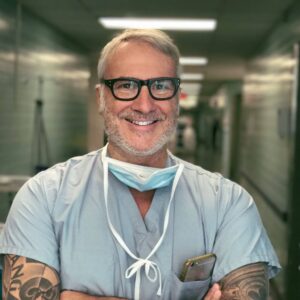
Dr. Andrea Vidali MD
Dr. Andrea Vidali, M.D
Endometriosis Specialist, Obstetrics & Gynecology / General Obstetrics & Gynecology, Reproductive Endocrinology
Summary: Dr Andrea Vidali MD is a highly regarded endometriosis specialist and reproductive endocrinologist based in New York, NY, USA. Known for his expertise and compassionate approach, Dr Vidali offers comprehensive care for patients dealing with complex endometriosis cases. His practice attracts individuals from both the New York City area and beyond, especially those searching for a trusted expert like Andrea Vidali NYC. What makes Dr Andrea Vidali endometriosis treatment unique is his focus on combining excision surgery with targeted medical therapies, such as progestins and IUDs. This approach not only helps control bleeding but also addresses related conditions that often go untreated. His methods are especially effective for patients who haven’t responded well to hormonal therapy alone.
In addition to his surgical skill, Dr Vidali emphasizes the importance of personalized, long-term care. Every patient receives a tailored recovery plan that may include physical therapy and collaboration with physiatrists to help manage persistent pelvic pain. This ongoing support is a key part of the experience with Dr Andrea Vidali MD, who believes that successful treatment doesn’t end in the operating room.
Many patients turn to Dr Andrea Vidali MD not just for his medical knowledge, but for his commitment to improving their overall quality of life. Whether you’re local to New York or researching providers like Andrea Vidali NYC from across the country, his integrative approach to endometriosis makes him a leading choice in the field. It’s no surprise that Dr Andrea Vidali endometriosis care is so highly sought after by those navigating this challenging condition.
City: New York, NY, USA
Philosophy: Current scientific evidence points to the coelomic theory of endometriosis
Medication: The approach to endometriosis has to be holistic and address not only the disease itself but also potentially associated conditions. At this time, since we do not have medical candidates for curing endometriosis, the first essential step in the treatment of endometriosis is excision surgery. Additionally, Dr. Vidali rely on hormonal contraception, preferably progestins either orally or in the form of IUD to control bleeding or adenomyosis-related factors, if present. He does not rely on GnRH agonists or antagonists as in my experience the risk profile and efficacy profile not better than progestins make them undesirable.
Approach to Persistent Pain: I would like to affirm that I follow all the patients I operate on until they are well. I see the patients periodically as long as necessary. I always have a plan post-operatively especially if history, lab work, and initial examination have highlighted the possibility of the coexistence of additional pain generators. I do recommend physical therapy to most if not all patients and rely on a network of physiatrists.

